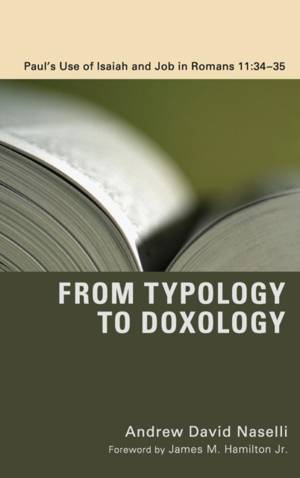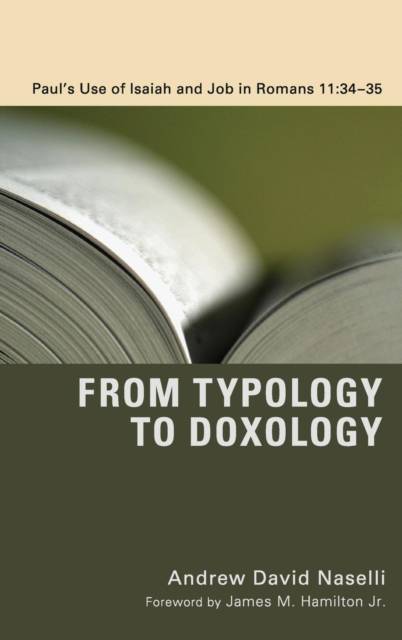
Door een staking bij bpost kan je online bestelling op dit moment iets langer onderweg zijn dan voorzien. Dringend iets nodig? Onze winkels ontvangen jou met open armen!
- Afhalen na 1 uur in een winkel met voorraad
- Gratis thuislevering in België vanaf € 30
- Ruim aanbod met 7 miljoen producten
Door een staking bij bpost kan je online bestelling op dit moment iets langer onderweg zijn dan voorzien. Dringend iets nodig? Onze winkels ontvangen jou met open armen!
- Afhalen na 1 uur in een winkel met voorraad
- Gratis thuislevering in België vanaf € 30
- Ruim aanbod met 7 miljoen producten
Zoeken
From Typology to Doxology
Paul's Use of Isaiah and Job in Romans 11:34-35
Andrew David Naselli
Hardcover | Engels
€ 66,95
+ 133 punten
Uitvoering
Omschrijving
At the end of Romans 11, Paul quotes both Isaiah and Job. As with other New Testament uses of Old Testament texts, this raises several questions. What is the context of these Old Testament passages? How are they used in other Jewish literature? What is Paul's hermeneutical warrant for using them in Romans 11? What theological use does Paul make of them? How, if at all, does their use in Romans 11 contribute to the broader discussion on the use of the Old Testament in the New? In addressing these questions, this book reveals a remarkable typological connection that climaxes in the doxology of Romans 11:33-36, exalting God's incomprehensibility, wisdom, mercy, grace, patience, independence, and sovereignty.
Specificaties
Betrokkenen
- Auteur(s):
- Uitgeverij:
Inhoud
- Aantal bladzijden:
- 214
- Taal:
- Engels
Eigenschappen
- Productcode (EAN):
- 9781498262088
- Verschijningsdatum:
- 12/07/2012
- Uitvoering:
- Hardcover
- Formaat:
- Genaaid
- Afmetingen:
- 152 mm x 229 mm
- Gewicht:
- 453 g

Alleen bij Standaard Boekhandel
+ 133 punten op je klantenkaart van Standaard Boekhandel
Beoordelingen
We publiceren alleen reviews die voldoen aan de voorwaarden voor reviews. Bekijk onze voorwaarden voor reviews.











